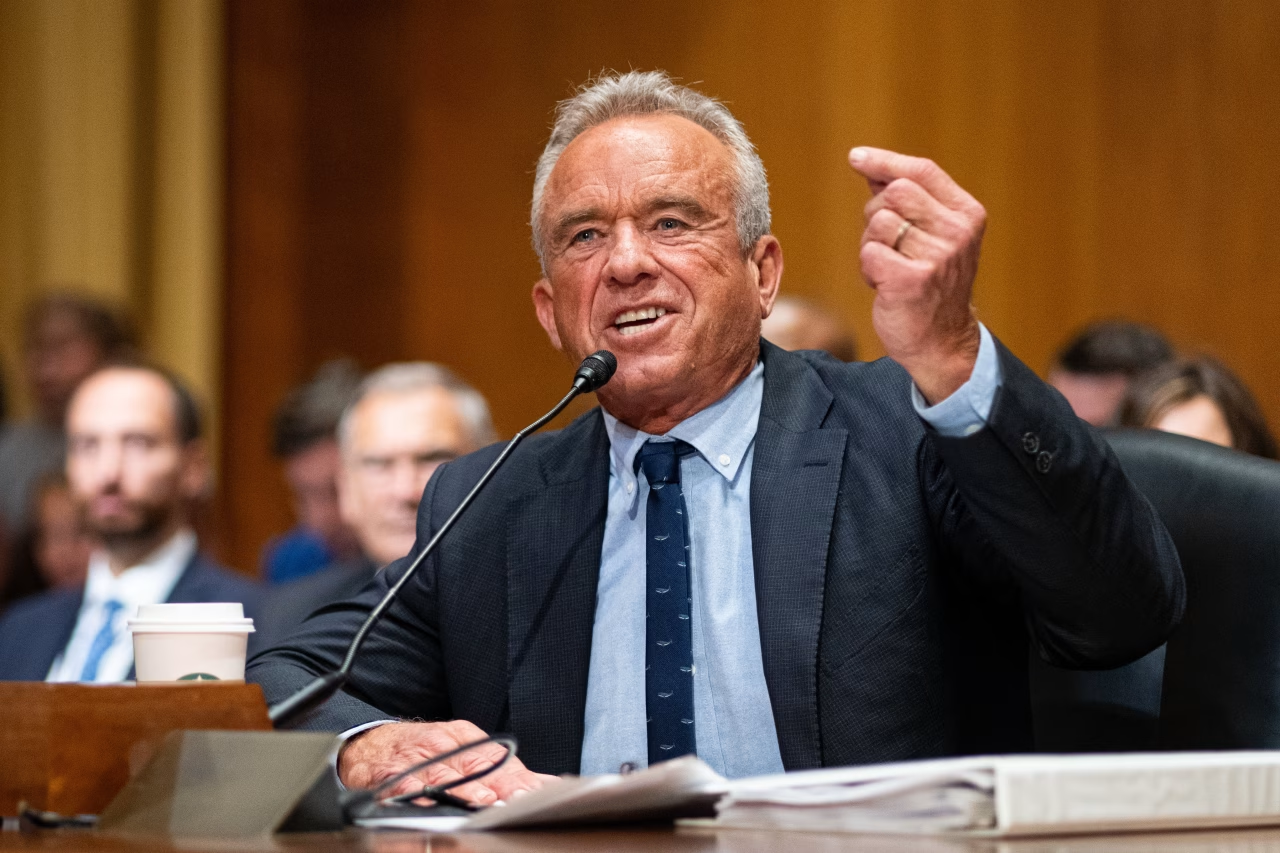US Health Secretary Robert F. Kennedy Jr. sparked controversy in a Senate hearing by calling the US the “sickest country in the world,” defending his decision to fire a top government scientist and highlighting the alarming rise in chronic disease rates.

A Combustible Exchange
In a heated Senate hearing on public health, US Health Secretary Robert F. Kennedy Jr. declared that America has become the “sickest country in the world.” His remarks ignited immediate backlash and renewed debates over the nation’s health crisis, the role of science in government, and his aggressive approach to reforming federal health agencies.
Kennedy, who was questioned over his recent decision to fire a senior government scientist, doubled down on his move. He told lawmakers: “I sacked people who did not do their job. 76.4% of Americans now have a chronic disease. That is unacceptable.”
Chronic Illness and Systemic Failure
Kennedy’s comments come against the backdrop of rising concern about chronic disease in the United States. Conditions like diabetes, heart disease, obesity, and autoimmune disorders have surged over the past two decades. According to recent federal data, nearly 4 in 5 Americans are living with at least one long-term condition.
Public health experts say the crisis is driven by a toxic mix of poor diet, sedentary lifestyles, environmental exposures, and systemic failures in preventive healthcare. Kennedy has long argued that regulatory agencies failed to confront powerful industries that profit from unhealthy food, pharmaceuticals, and environmental pollutants.
Firing Sparks Controversy
The dismissal of a top scientist has sparked fierce debate in Washington. Critics accuse Kennedy of politicizing science, while supporters say he is finally holding officials accountable for decades of mismanagement.
During the Senate hearing, Kennedy refused to back down. “I am not here to preserve the careers of bureaucrats,” he said. “I am here to protect the health of the American people.”
His opponents in the Senate argued that abrupt firings undermine institutional stability. Some warned that replacing experts with political appointees could further erode public trust in scientific institutions.
The Bigger Picture
Kennedy’s testimony comes at a moment when US health policy is under intense scrutiny. Healthcare costs remain among the highest in the world, while life expectancy has declined in recent years. Drug overdoses, rising obesity rates, and persistent gaps in access to care have deepened the sense of crisis.
The Health Secretary framed his actions as part of a radical reform agenda, promising to “rebuild trust, transparency, and accountability” in the system. He called on lawmakers to prioritize prevention over profit, warning that the current trajectory could bankrupt the nation’s healthcare system within decades.
Political Fallout
The fiery exchange underscores Kennedy’s polarizing role in the administration. Once seen as an outsider with controversial views on vaccines and public health, he has leveraged his Senate appearances to position himself as a crusader against what he calls “corporate capture” of government agencies.
For some, his blunt rhetoric resonates with voters who feel left behind by a healthcare system that delivers poor outcomes despite massive spending. For others, his remarks risk undermining fragile trust in scientific expertise and creating further division.
What Comes Next
As the fallout continues, Kennedy faces pressure to outline concrete policies beyond high-profile firings. Lawmakers from both parties have demanded clarity on his long-term plan to tackle the chronic disease epidemic.
Observers note that the Health Secretary’s comments may mark a turning point in public discourse. By declaring the US the “sickest country in the world,” Kennedy has reframed the health debate in stark moral terms. Whether that rhetoric translates into effective reform remains uncertain.












Comments are closed.